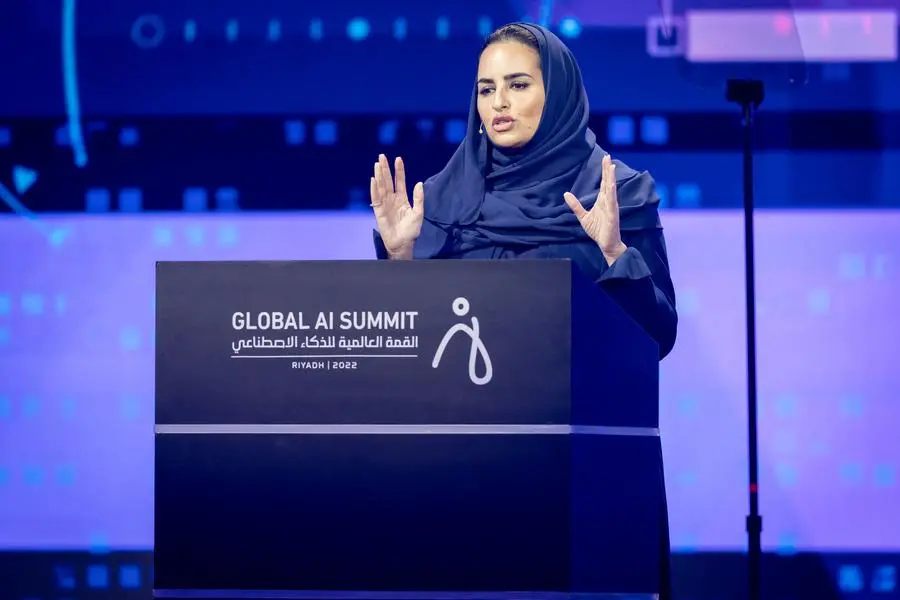PHOTO
Riyadh, Saudi Arabia – Following a Ministerial roundtable at the Global AI Summit, member states of the Digital Cooperation Organization (DCO) agreed to adopt the Riyadh AI Call for Action Declaration (RAICA), which seeks to use AI technology to benefit people, communities, nations, and the world as a whole.
The declaration was signed by all members of DCO including Bahrain, Cyprus, Djibouti, Kuwait, Morocco, Nigeria, Oman, Pakistan, Jordan, Rwanda, and Saudi Arabia.
The call to action aims to advance the DCO’s commitment to identify and address present, emerging and future humanitarian issues in the field of AI. The declaration highlights the different ways AI can be used as a tool to benefit the lives of millions of people around the world by improving the quality of work, developing better designed public policies and nurturing efficiencies into the ecosystem.
Deemah Al Yahya, Secretary General of DCO, said: “DCO was created with the ethos of establishing an inclusive digital economy through collaboration across diverse entities at all levels. The RAICA declaration is this idea put into practice. By signing this declaration all DCO member states are reaffirming their shared desire to usher in a brighter future for all by harnessing the huge potential of AI to improve the lives of people around the world.”
The declaration highlights seven key pillars that will help to bring this future into reality. Each is comprised of principles that seek to address methods to ensure that benefits of AI are enjoyed by all while harming none.
- Close the digital divide between AI and people of different genders, race, ethnicities and socio-economic statuses by increasing expertise, technical literacy and wider public understanding of AI. Develop and employ solutions that address the needs of marginalized communities as well as helping countries to finance and implement advanced digital infrastructure.
- Empower underprivileged communities with the aim of ending poverty and hunger through economic growth, leverage AI to usher in the next agricultural revolution and improve access to education and healthcare for all.
- Promote digital development through innovative AI solutions to build sustainable cities, improve infrastructure through connectivity and availability of tech devices. Financially support national AI start-ups and implement reskilling and digital capacity building for individuals.
- Ensure fairness and non-discrimination via safeguards that prevent AI algorithms from discriminating against communities based on race, ethnicity, culture religion and more while ensuring the use of AI technology follows legal guidelines.
- Drive innovation in AI by encouraging individuals, organizations and nations to focus on innovation in harnessing AI for human benefit and provide the necessary tools required to achieve this aim.
- Combat climate change by using AI to boost measures to conserve the environment, advance the green energy industry and ensure access to clean water while increasing power efficiency and reducing waste.
- Engage in international collaboration and cooperation in AI by developing shared global standards and regulations for the ethical use of AI, collaborate on AI-related research, and work with stakeholders to implement the objectives of the declaration.
DCO has developed a series of action areas to help these pillars to be implemented. To do this the member countries will push to provide all individuals with the resources they need to obtain AI literacy; work with organizations to identify how to employ AI to advance human rights; improve digital infrastructure; adopt comprehensive AI ethical guidelines; develop AI-supported initiatives to address global challenges; use AI to reduce human impact on the climate; and setup multilateral collaboration to accelerate AI accessibility across nations.
To view the full declaration, visit www.dcoinsights.com/RAICA




















